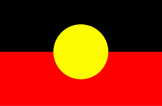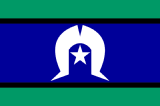In these times of escalating anxiety and the potential for deepened isolation our goal at the FCAV remains crystal clear; to connect, support and advocate for foster carers just as you continue to provide great care in exceptional circumstances.
The challenges of COVID-19 impacting our community means that the need for support has never been greater. I am aware of the added responsibility for the physical and mental health, education, and wellbeing of our children and young people in care. The FCAV team and I acknowledge and respect your critical and invaluable contribution.
The restrictions for the safety of our community present additional and complex challenges to carers with children and young people, many who are very likely to be exhibiting dysregulated behaviour and trauma patterns on top of the challenges faced by children everywhere brought on by staying at home for such extended periods of time.
We’re grateful for the quick response from Fostering Connections and Centre for Excellence in Child and Family Welfare who worked with us and across the sector to devise this comprehensive "Staying at Home Toolkit" for foster carers who are meeting the care needs of our children and young people. Download the Toolkit here. If you have trouble accessing the document, please email us at admin@fcav.org.au or phone 9416 4292 and we will send it you. We will continue to provide updated information related to foster care on our website, direct email and social media channels as it comes to hand.
With thanks again and take care,
Sam Hauge, CEO Foster Care Association of Victoria
Staying at Home Toolkit
This toolkit has been put together as a resource to help carers of children and young people in foster care when children in your care are home for long periods of time, such as during times of restricted movement and physical distancing. Includes info on:
• Looking after yourself
• Staying connected
• Creating a routine
• Learning and education
• Meditation, mindfulness & wellbeing
• Connecting to culture and country
• Dealing with heightened behaviours
• Staying safe
Click here to read the toolkit!
DHHS ADVICE FOR CARE SERVICES
Support during school closures
The Department of Education and Training (DET) has established arrangements to continue to supervise the children of essential services workforces as well as vulnerable students, including children in care, following the announcement of term 1 finishing on 24 March. DET will continue to look at ways to support vulnerable students and will provide updated advice via schools. Contact the child or young person’s school for further information.
If a student is a National Disability Insurance Scheme (NDIS) participant, they may be able to arrange disability supports funded from their NDIS plan during school hours in the case of school closures. Frequently asked questions and answers about the NDIS and COVID-19 are available on the NDIS website. Carers may also contact the child’s NDIS support coordinator, or the NDIS (ph: 1800 800 110) for more information about this.
Access arrangements
Supervised contact facilitated by Child Protection between children and families will be facilitated online or through other modes where possible.
All other types of contact should be kept to a minimum. The Child Protection case planner and contracted case manager, in consultation with children, families and carers will determine when any face to face contact is necessary and safe to occur with physical distancing. On the day of any planned face to face contact the case manager must call the family and use the checklist in screening of visitors for COVID-19 prior to supporting face to face contact. The checklist is available here. Family contact is important for children and their families in alternative ways – phone calls, video calls, writing letters or drawing.
Additional financial support for carers with greater need
To increase support to sustain home-based care placements during the COVID-19 period, agencies and divisions can support carers in meeting additional expenses incurred, by accessing other funds such as placement support, client expenses and kinship brokerage funding, in addition to the care allowance to meet a child’s day to day costs.
Expenses may include the extra cost of food, the need for additional cleaning products/supplies and additional home activities/entertainment for children if required.
For carers with suspected or confirmed corona virus carer allowance will continue to be paid even if the child in their care is moved to an emergency payment temporarily. To enquire about accessing additional supports please contact your agency.
Changes to learning and development opportunities for carers
Carer KaFE face to face sessions and events have been postponed until May 1. It will be reassessed as DHHS issues updates.
Victorian statutory kinship and accredited foster carers should visit the website to register for online learning including online sessions, podcasts, videos and webinars. If there are issues registering email info@carerkafe.org.au. If there are issues after you get your log in Online Providers are there to support carers through the set up.
The National Foster and Kinship Conference in South Australia has also been postponed until 10th to 12th June 2021 so the keynote speaker and Carer KaFE Sarah Naish Masterclasses will also be postponed and rescheduled until Early June 2021.
Fostering Resilience by Michael Place is being turned into an online module and the carer requested Fostering Resilience – Youth Edition session where young people aged 9 to 18 participate with their carers, will now be an interactive school holiday Webinar. Keep an eye on Carer KaFE Facebook or email us your interest, for the April session details. More online opportunities to come.
Raising Expectations – Important Update
Raising expectations has collated this guide to financial and other supports available to care leaver students during this difficult time. Read it here.


